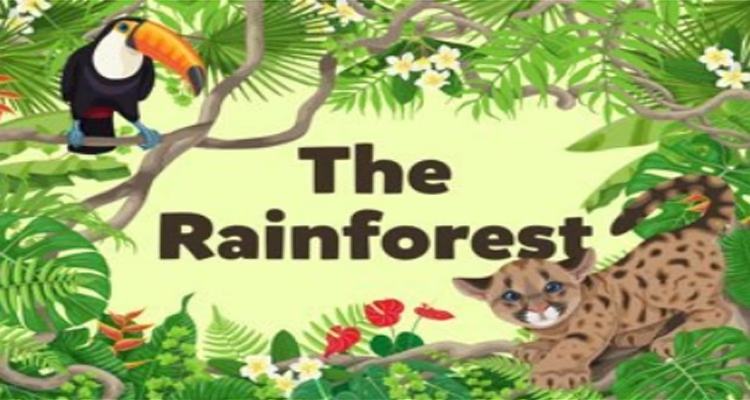
 World Rainforest Day is observed annually on June 22nd. It’s a day dedicated to raising awareness about the vital role rainforests play in our planet’s health and encouraging action to protect them. Rainforests are partly self-watering, meaning the plants release water into the atmosphere. Known as transpiration, the moisture creates a cloud of moisture over the rainforest and keep the rainforest watered.
World Rainforest Day is observed annually on June 22nd. It’s a day dedicated to raising awareness about the vital role rainforests play in our planet’s health and encouraging action to protect them. Rainforests are partly self-watering, meaning the plants release water into the atmosphere. Known as transpiration, the moisture creates a cloud of moisture over the rainforest and keep the rainforest watered.
We all are aware that the rain forests are keeping our planet alive. They’re home to half the world’s animal species, they provide us with freshwater, and are essential for keeping our climate stable. Yet every second, one and a half hectares is lost, while each year, 78 million hectares of precious rainforest are destroyed. Because of this world Rainforest Day has been created to take decisive action to combat deforestation, reduce the effects of climate change, and protect our rainforests for future generations.
World Rainforest Day celebrates the importance of maintaining healthy, intact rainforests for climate stability, biodiversity preservation, cultural heritage, and sustainable livelihoods. It serves as a global platform to promote efforts in safeguarding and restoring these vital environments.
Rainforests are endangered around the world. Logging, mining, and agriculture are the main reasons they are declining. Nearly 20 percent of the Amazon rainforest has been destroyed in the past 50 years. As we lose rainforest land, we lose many plants and animals that benefit our atmosphere and society. In fact, many of the plants found in rainforests are now being used to create medicine, including anti-cancer drugs.
Of the Earth’s ecosystems, rainforests support the largest variety of plants and animal species, house the majority of indigenous groups still living in isolation from the rest of humanity, and power the mightiest rivers. Rainforests lock up vast amounts of carbon, moderate local temperature, and influence rainfall and weather patterns at regional and planetary scales.
Deforestation in the world’s tropical forests has remained persistently high since the 1980s due to rising human demand for food, fibre, and fuel and the failure to recognize the value of forests as healthy and productive ecosystems.
In 2024, the launch of the World Rainforest Day pledge program aims to spur immediate action across all sectors to combat deforestation and address environmental degradation.
Rainforests play a critical role in climate regulation and carbon sequestration, influencing weather patterns by releasing water vapour from leaves to form atmospheric rivers, thereby supplying essential precipitation to distant regions. The Amazon rainforest, known as the ‘lungs of the planet,’ is the world’s largest tropical rainforest, contributing about 20% of Earth’s oxygen and storing significant amounts of carbon dioxide, mitigating greenhouse gas emissions.
As more and more rainforest is removed, the surrounding wildlife habitats and homes of Indigenous Peoples are also more significantly disrupted. The scale of deforestation can cause climate change, flooding, desertification, and soil erosion—all things which threaten our planet and our way of life. Let us help our local wildlife to sustain global biodiversity, and even help some migrating birds on their way home. Let us come together to take all positive and hopeful action to protect the rainforest and preserve its lifespan as it has maintained our own lives for thousands of years.




